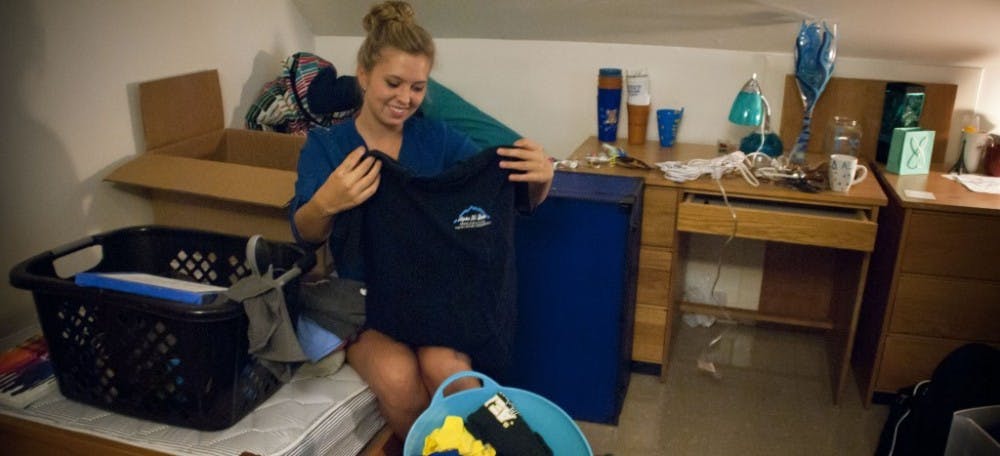Don’t believe the hype — not when it comes to all the college horror stories, at least.
“It’s really not that bad,” says Brittany Woodard, a recent graduate of Elon University. “I loved my freshman year. Yes, you will be poor, and yes, you will have to eat cafeteria food — neither one of these are the end of the world.”
Breaking away from your parents can be tough, but Woodard says it’s still necessary and to keep in contact often.
“Don’t worry about homesickness. It happens,” she says. “If it doesn’t, that’s OK, too. You going to school is harder for them than it is for you. Don’t only call your parents when you need money. That’s just rude.”
Woodard also advises freshmen to be patient when arriving on campus, and to not shy away from something because it scares them.
“Give your school more than a semester,” she says. “Don’t go in with the mindset that you are going to transfer. And don’t not do something just because it scares you. Everything worth doing should make you a little anxious — it’s how you know you’re actually living and not just watching television all day.”
Tim Woodard, Brittany’s father and director of admissions for Mount Olive College, says it’s best for parents to let go and trust their children.
“Parents can’t micromanage anymore,” he says. “You have to trust you did a good job raising them and let them grow up, and have faith that they’ll choose the right roads.”
[quote]Don’t only call your parents when you need money. That’s just rude. -- Brittany Woodard, Elon alumna[/quote]
He encourages students to make sure they go to class because missing class will cost them — literally.
At a private university that costs $41,000 per year, it costs $20,500 to attend classes for one semester. If a student takes four classes, it costs him or her $5,125 per class per semester. Throughout a 15-week semester, a student has roughly 45 three-day-a-week classes in one subject. Missing one of those classes would cost a student $113.88. Every time a student chooses to miss or skip class, it is as if he or she walked into the classroom, gave the professor more than $113 and walked out to go back to bed or do something else.
Making the correct decisions leads to a more fulfilling college experience, and Tim shares some tips to help rising college freshmen succeed.
“The biggest thing is time management,” Tim says. “In high school you have a pretty structured day, but in college you might have three classes that day and be done by 11 in the morning. And a lot of times kids will procrastinate on reading because in high school, they could do all the reading the night before. But in college, the professor will assign a chapter due the next week and kids will procrastinate and not get started. They’ll go on like this and the professor will tell them there’s an exam Wednesday, and they find themselves trying to read 15 chapters of the book in one night, and you just can’t do that.”
But above all else, Brittany says, it’s important to enjoy one’s time in college before it’s gone.
“Four years is a lot shorter than you think,” she says. “College shouldn’t necessarily be the best years of your life, but they should be the best so far. And don’t forget to study. Studying is important.”


